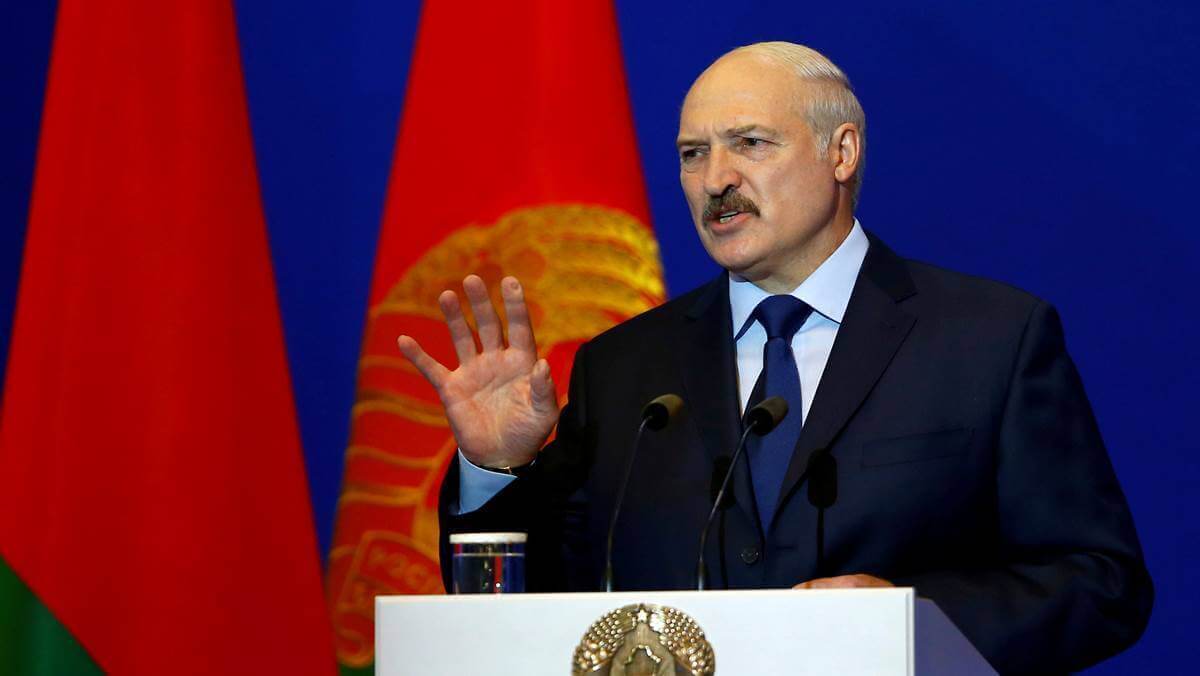President Alexander Lukashenko on Tuesday said that there would be “no transfer of power” in Belarus, despite months-long nationwide protests against his regime.
“There can be no transfer of power in Belarus… Everything will be done in accordance with the constitution and the laws,” Lukashenko said, during a meeting regarding the country’s cooperation with Russia. “As I have said, we will adopt a new constitution in January or February next year. And that is all that the transfer of power will be about,” he added. Previously, the president had promised to step down after the country adopts a new constitution, but he has yet to provide any solid details about his so-called departure. This latest statement, however, confirms that Lukashenko is in no rush to step down.
Lukashenko, who has been dubbed “Europe’s last dictator” by his critics, has been in power for more than 26 years. After securing a six-term as president in August last year, tens of thousands of citizens took to the streets to protest the results and have continued to do so every day since, calling for his resignation. The opposition claims that the election was rigged and has demanded re-election followed by significant constitutional reforms. Belarusian authorities have cracked down heavily on protests, detaining hundreds every day, and imprisoning critics and journalists. The country’s main opposition candidate, Svetlana Tsikhanovskaya, has taken refuge in neighbouring Lithuania due to security concerns.
The embattled leader’s actions have also drawn the ire of Western nations like the European Union (EU) and the United States (US), who have refused to recognize his electoral win, and have introduced sanctions against the country’s authorities for their brutal suppression of dissent.
Lukashenko, for his part, has sought to portray the anger against him as a foreign-directed “blitzkrieg,” and has consistently claimed victory over any efforts to overthrow his government. “Despite the tensions in society artificially created by external forces, we survived,” Lukashenko told his supporters at the All-Belarus People’s Assembly last month, adding that Belarus “will hold out no matter what.”
However, increasing Western pressure has also pushed the leader to become more reliant on Russia’s support, even though the latter seeks to pressure Minsk into integration. Lukashenko acknowledged the close relationship between the two sides on Tuesday, but also emphasized that Belarus remained “a sovereign and independent state.” The leader stressed that the issue of transfer of power was an internal one, and therefore not discussed during his meetings with Russian President Vladimir Putin last month. “It is up to us to decide how to build our country. As for foreign policy activities, we agreed to coordinate them,” Lukashenko noted.
Lukashenko Dismisses Prospects of ‘Transfer of Power’ in Belarus
The embattled leader, who has been dubbed “Europe’s last dictator” by his critics, has been in power for more than 26 years.
March 3, 2021

SOURCE: REUTERS
